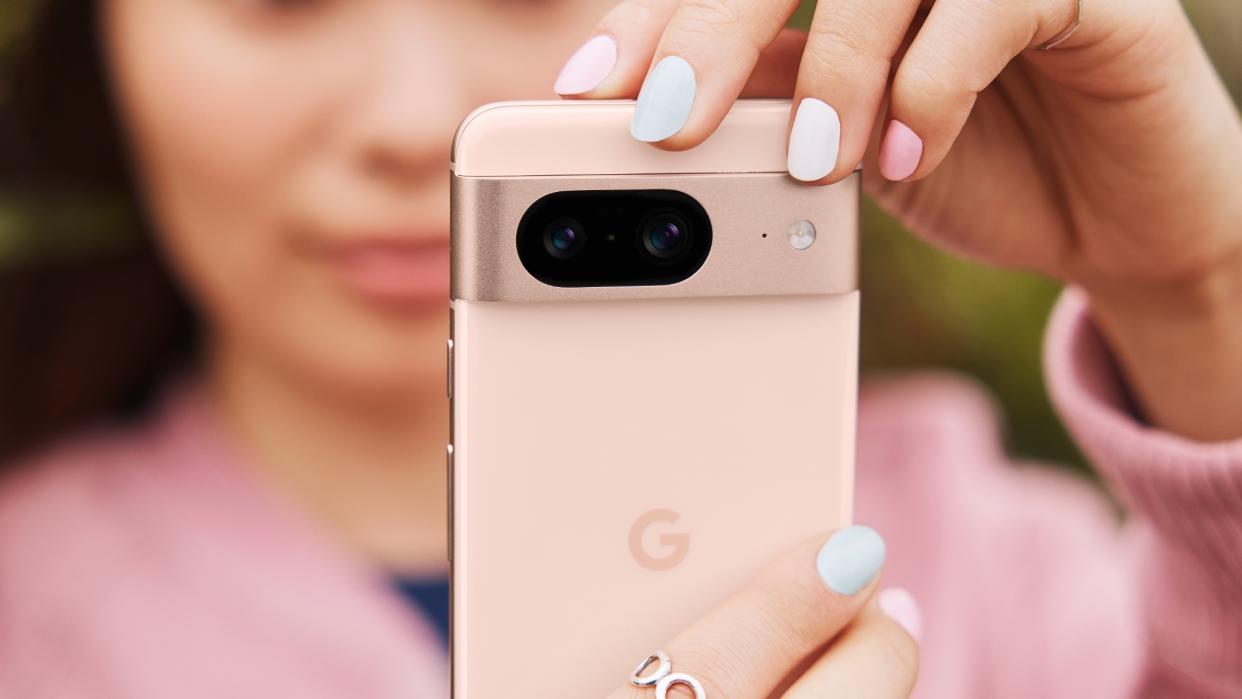Google looked to the original Pixel to decide on 7 years of software updates for the Pixel 8

With the launch of the Pixel 8, Google rocked the industry with its decision to offer seven years of full OS upgrades — surpassing competitors Samsung and even Apple. That support covers everything, including full Android updates, the regular Pixel feature drops and security updates. But how did Google decide on that seven-year mark? We got our answer this week from the company's Vice President of Devices and Services, Seang Chau, spoke about the promise on the latest episode of the Made by Google podcast.
As it turns out, that seven-year promise wasn’t an arbitrary decision; it was calculated after studying the lifespan of Google's first Pixel smartphone based on active user data, Chau explained:
“So when we look at the trajectory of where the original Pixel that we launched in 2016 landed and how many people were still using the first Pixel, we saw that actually, there’s quite a good active user base until probably about the seven-year mark. So if we think about, okay, we want to be able to support Pixel for as long as people are using the device, then seven years is about that right number.”
To put that into perspective, the Samsung Galaxy S23 is promised to get four years for software updates and five years of security updates. And while Apple doesn't promise a predetermined number of years for security and software updates, we can look at the iOS 17 device support to get a ballpark estimate. The oldest phone on the list is the iPhone XR, which had a release date of 2018, so iPhone users can expect roughly five years of support.
Better processors and QA testing help extend support
With its shift to using custom Tensor processors, Google has been able to gradually offer better software support. It's a process that started with the Pixel 6, which saw a jump to five years of software and security updates (up from three years with the Pixel 4 and Pixel 5).
"After we got a couple more years of Tensor under our belt...we're really being able to figure out how to best do those updates," Chau said, adding that the company "got a lot more comfortable saying we can go to that seven years and be able to deliver to our customers that extended time."
The transition to year-round beta programs with quarterly platform releases has also played a significant role in the decision to make this kind of commitment.
“Now that we have these beta programs year-round, we have much more confidence that we’ll have a reliable update for users on a quarterly basis because we have a lot of beta testers," Chau said. This ensures that "features that we’re moving from the annual releases to these quarterly releases are going to work and work well for our users.”
Chau said that, as users get toward the latter end of that seven-year promise, Google plans to prioritize software-only features that don't need extra RAM, storage, co-processor, or "some other hardware capability" to hopefully keep Pixel phones running smoothly for longer. That's comforting to hear now knowing that Gemini Nano AI was almost exclusive to the Pixel 8 Pro because it's such a RAM hog on the standard Pixel 8. Ideally, new features added later won't require new hardware to work. Sadly, it's still unclear whether any models besides the Pixel 8 and Pixel 8 Pro will also benefit from extensions of the older five-year and three-year update commitments.

